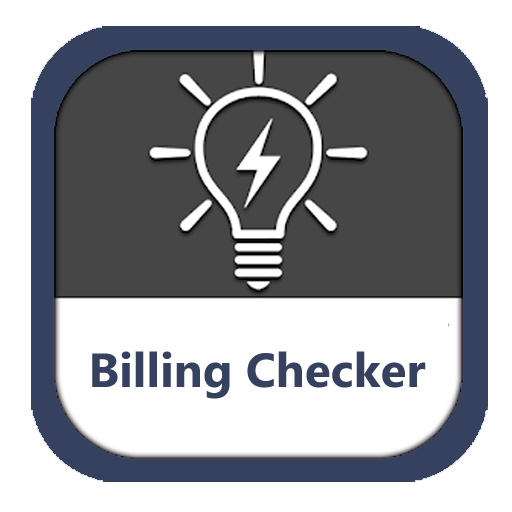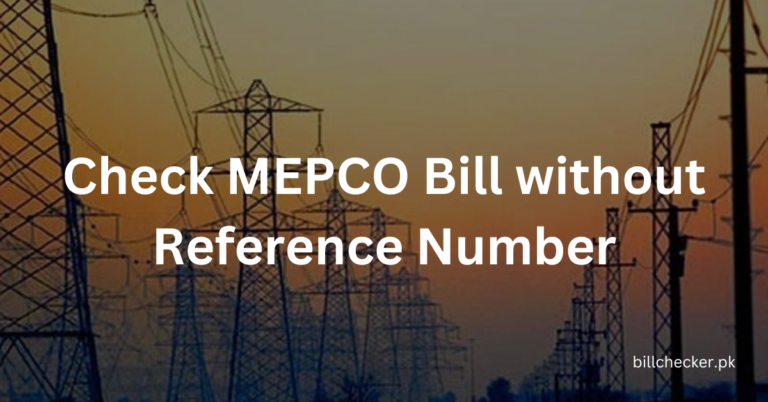10 Incredible Tips to Reduce Your Electricity Bill in Pakistan
Electricity costs can chew through a big chunk of your monthly budget, particularly during those high-demand seasons. Yet, you don’t need to skimp on comfort to cut down on your power usage. With some smart tweaks, you can lower your electricity bills and keep enjoying your lifestyle just the same.
Here are ten stellar tips to help you slash your electricity bills and ease up on energy consumption:
10 Tips to Reduce Your Electricity Bill and Energy Consumption
Here are ten tips to reduce your electricity bill and energy consumption:
Check Out Your Home’s Energy Use
A great way to cut down on your electricity bill is by doing an energy audit of your home. This means checking where you might be using more power than you need and figuring out how to use less.
You can hire a pro to do this. They’ll look at your home’s insulation, your heating and cooling systems, appliances, and lighting. They might use cool tools like infrared cameras to find drafts or spots where your home isn’t keeping the heat or cool air in as well as it could.
But you can also do a basic check yourself. Just walk around your house and look for places where energy might be slipping through the cracks—like drafty windows or gadgets that stay plugged in all the time even when you’re not using them. Changing out old, inefficient light bulbs for newer ones can also make a big difference.
By doing this, you’ll get a good idea of where you can make changes to save energy and lower your bill.
2. Switching to Energy-Efficient Appliances and Devices:
A really good way to cut down on your energy use and save money on your electricity bill is by using energy-efficient appliances and devices. These use less power, which can help you save a lot of money over time.
When you’re out shopping for new appliances, look for ones with the ENERGY STAR label. This label means that the Environmental Protection Agency has checked them out and they meet high standards for using less energy.
You can also change over to energy-saving items like LED light bulbs and power strips. LED bulbs use much less energy—up to 75% less—than the old-style bulbs and they last a lot longer too. Power strips are handy because they let you turn off several devices all at once, which stops them from using power when you’re not using them.
By switching to these energy-saving appliances and devices, you’ll not only save money, but you’ll also be doing your part to help the environment.
3. Unplug Appliances and Devices When Not in Use to Avoid Phantom Loads:
Did you know that your appliances and gadgets still use energy even when they’re turned off? This sneaky energy use is called phantom load or standby power, and it can make up to 10% of your home’s energy usage.
To cut down on phantom loads, make sure to unplug your appliances and devices when you’re not using them. This goes for your TV, game consoles, chargers, and even kitchen items like toasters and coffee makers.
Another handy tip is to use power strips with an on/off switch. This way, you can turn off several devices at once, which is really useful for places like your entertainment center or home office where you have many devices plugged in.
Although phantom loads might not seem like much, they can really add up over time and lead to higher electricity bills. By being mindful and unplugging your devices when they’re not in use, you can use less energy and save some money on your bills.
4. Install Power Strips to Make It Easier to Turn Off Multiple Devices at Once:
Power strips with an on/off switch are a great way to easily turn off several devices at once when you’re not using them. This is especially useful for areas like your entertainment center or home office, where you might have many gadgets plugged in.
Using power strips helps you avoid phantom loads, which is the energy devices use even when they’re turned off. Just flip the switch on the power strip to “off” once you’re done using the devices. This simple action can help you save both energy and money on your k electric bills.
5. Switch to LED or CFL Light Bulbs to Reduce Energy Consumption:
One of the simplest ways to cut down on your energy use and lower your electricity bills is to switch to LED or CFL light bulbs. These bulbs use a lot less energy than the old-style incandescent bulbs and can last up to 25 times longer.
Even though LED bulbs might cost more when you buy them, they can save you a lot of money in the long run. For instance, if you replace just five of your most-used light fixtures with ENERGY STAR-certified LED bulbs, you could save up to $75 a year on your energy costs.
Plus, LED bulbs are better for the environment because they don’t have hazardous materials like mercury, which is found in some CFL bulbs.
By switching to LED or CFL bulbs, you not only cut your energy use and save money, but you also help make the future more sustainable.
6. Set a Programmable Thermostat to Optimize Heating and Cooling:
Heating and cooling your home can use up a lot of energy, which means higher electricity bills. But by using a programmable thermostat, you can better manage your HVAC system and save money on those energy costs.
A programmable thermostat lets you set different temperatures for different times of the day or week. For instance, you can lower the temperature when you’re asleep or not at home. This means your HVAC system doesn’t have to work as hard to keep your home comfortable, which can help reduce your electricity bills.
Plus, some smart thermostats can even learn your schedule and adjust the temperature automatically. That way, your HVAC system changes the temperature based on when you’re usually home or away, all without you having to do anything.
7. Use Energy-Efficient Water Heaters and Set the Temperature to 120°F:
Water heating is a big part of your home’s energy use, which means it can really push up your electricity bills. This is especially true in places like Karachi, where keeping track of your energy costs is crucial. You can cut down on these costs by switching to an energy-efficient water heater and setting the temperature to 120°F (49°C).
Energy-efficient water heaters, like heat pumps or tankless models, use a lot less energy than traditional tank water heaters. These advanced heaters warm up water only when you need it, instead of keeping a big tank of hot water ready all the time.
By making this switch, not only will you use less energy, but you’ll also save money on your electricity bills.
8. Avoid Using Air Conditioning During Peak Hours and Instead Use Ceiling Fans or Natural Ventilation:
Air conditioning can really hike up your energy use and electricity bills, especially during the warm summer months. However, you can cut down on your energy costs by not using your air conditioner during the peak hours of noon to 6 p.m., when energy demand and prices are at their highest.
Instead of using air conditioning, try cooling your home with ceiling fans or by simply opening your windows. Ceiling fans use a lot less energy compared to air conditioners and can help circulate air around your home, making it feel cooler. Natural ventilation, like letting in breezes through open windows, can also cool your home effectively without any electricity at all.
By avoiding air conditioning during peak hours and opting for ceiling fans or natural ventilation, you can greatly reduce your energy usage and lower your electricity bills, all while keeping your home comfortably cool.
9. Regularly Maintain Your Appliances and HVAC System to Ensure They Are Running Efficiently:
Regular maintenance of your appliances and HVAC (heating, ventilation, and air conditioning) system is crucial to ensuring they are running efficiently and using the minimum amount of energy possible. When appliances and HVAC systems are not properly maintained, they can use more energy than necessary and result in higher electricity bills, such as FESCO online bills for those living in Faisalabad.
Simple maintenance tasks, such as cleaning or replacing air filters, can help improve the efficiency of your HVAC system and reduce energy consumption. Similarly, cleaning the coils of your refrigerator or freezer can help them run more efficiently and use less energy.
Regular maintenance can also help detect and fix any issues with your appliances or HVAC system before they become major problems. This can prevent costly repairs or replacements in the future and help your appliances and HVAC system last longer.
10. Upgrade Your Home Insulation to Prevent Air Leaks and Reduce Heating and Cooling Loss:
Upgrading your home insulation is one of the most effective ways to prevent air leaks and reduce heating and cooling loss, which can result in significant energy savings and lower electricity bills. Insulation acts as a barrier that helps to keep warm air inside during winter and cool air during summer, which means your heating and cooling systems will have to work less to maintain the desired temperature.
The most common areas in a home where air leaks occur are around windows and doors, in the attic, and through the walls. By upgrading your insulation in these areas, you can significantly reduce the amount of energy required to heat or cool your home. This can result in significant energy savings and lower electricity bills.
There are several different types of insulation materials available, including fiberglass, cellulose, and spray foam. Each type has its own unique advantages and disadvantages, so it’s important to do your research and choose the right type of insulation for your home.
4 Ways to Improve Electrical Appliance Efficiency
1. Keep Your Appliances Clean and Dust-Free to Ensure Efficient Functioning:
Keeping your electrical appliances clean and dust-free is essential to ensure efficient functioning. Dust, dirt, and other debris can accumulate on the surface of your appliances, which can reduce their efficiency and increase energy consumption. Regular cleaning of your appliances can help to keep them running smoothly and extend their lifespan.
For example, if your refrigerator coils are covered in dust and dirt, the compressor will have to work harder to maintain the desired temperature, which can increase energy consumption and lead to higher electricity bills. By simply cleaning the coils and other components of your refrigerator, you can improve its efficiency and reduce energy consumption.
Similarly, dust and dirt can accumulate on the blades of your ceiling fans, reducing their efficiency and increasing energy consumption. Regular cleaning of your fans can help to keep them running smoothly and reduce energy consumption.
2. Use the Appropriate Size of Pots and Pans on Your Stove to Avoid Energy Wastage:
Using the appropriate size of pots and pans on your stove is an effective way to improve the efficiency of your cooking and avoid energy wastage. When you use a pot or pan that is too small for the burner, energy is wasted as the heat escapes around the sides of the pot. On the other hand, if you use a pot or pan that is too large for the burner, the excess heat can damage the burner and waste energy.
To ensure efficient use of energy, use the appropriate size of pots and pans on your stove. Use smaller pots and pans for smaller burners and larger pots and pans for larger burners. This will help to ensure that the heat is distributed evenly and efficiently, and will reduce energy wastage.
3. Keep Your Refrigerator and Freezer Stocked but Not Overfilled to Ensure Optimal Cooling:
Keeping your refrigerator and freezer stocked but not overfilled is an effective way to improve their efficiency and ensure optimal cooling. When the fridge and freezer are stocked with food, the thermal mass helps to maintain the temperature and reduces the amount of work that the compressor has to do to maintain the set temperature.
However, overfilling the fridge or freezer can obstruct air circulation and cause the compressor to work harder than necessary to cool the interior. This can lead to energy wastage and higher electricity bills.
To ensure optimal cooling and improve the efficiency of your fridge and freezer, keep them stocked with food but avoid overfilling them. Leave enough space for air to circulate, and organize the contents to ensure that the cool air can flow freely.
4. Use the Right Cycle and Load Size for Your Dishwasher and Washing Machine:
Using the right cycle and load size for your dishwasher and washing machine is crucial in improving their efficiency and reducing energy consumption. The right cycle and load size not only ensure that the dishes and clothes are cleaned effectively, but they also help to conserve water and energy.
When using your dishwasher, make sure to use the appropriate cycle for the dishes being washed. Avoid pre-rinsing the dishes before loading them into the dishwasher as it wastes water and energy. Also, make sure to only run the dishwasher when it is full, as running it with a partial load wastes water and energy.
When using your washing machine, use the appropriate cycle and load size for the clothes being washed. Avoid overloading the washing machine, as it can cause the machine to work harder and use more energy to clean the clothes. Also, consider washing your clothes in cold water instead of hot water, as it can significantly reduce energy consumption.
Conclusion
In conclusion, reducing your electricity bill and energy consumption doesn’t have to be complicated or costly. By following these 10 tips and improving the efficiency of your appliances, you can significantly lower your bills and contribute to a more sustainable future. Conducting an energy audit, using energy-efficient appliances and devices, and maintaining your HVAC system are just a few examples of how you can make a big difference. Let’s all do our part to conserve energy and protect the planet.








Leave a Reply